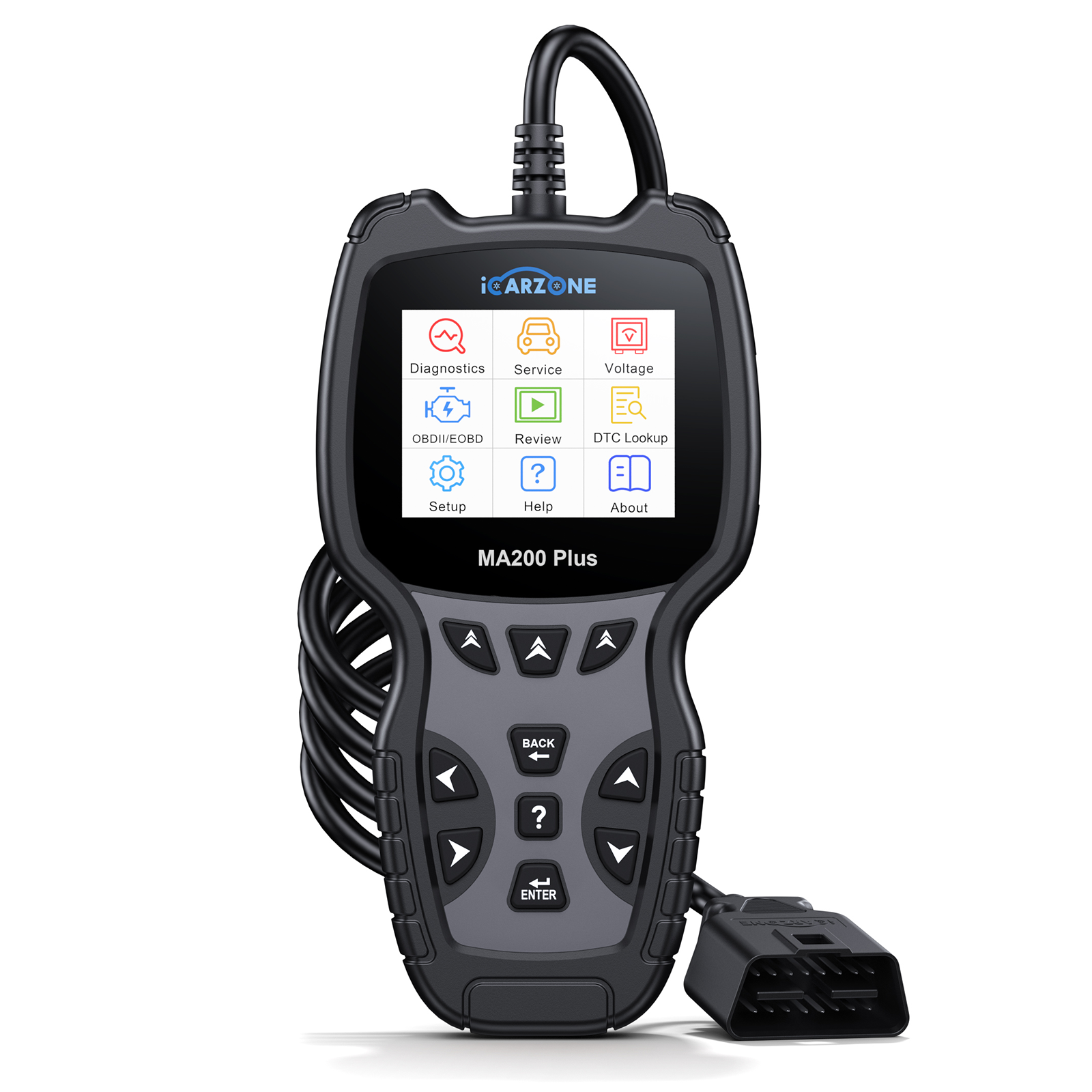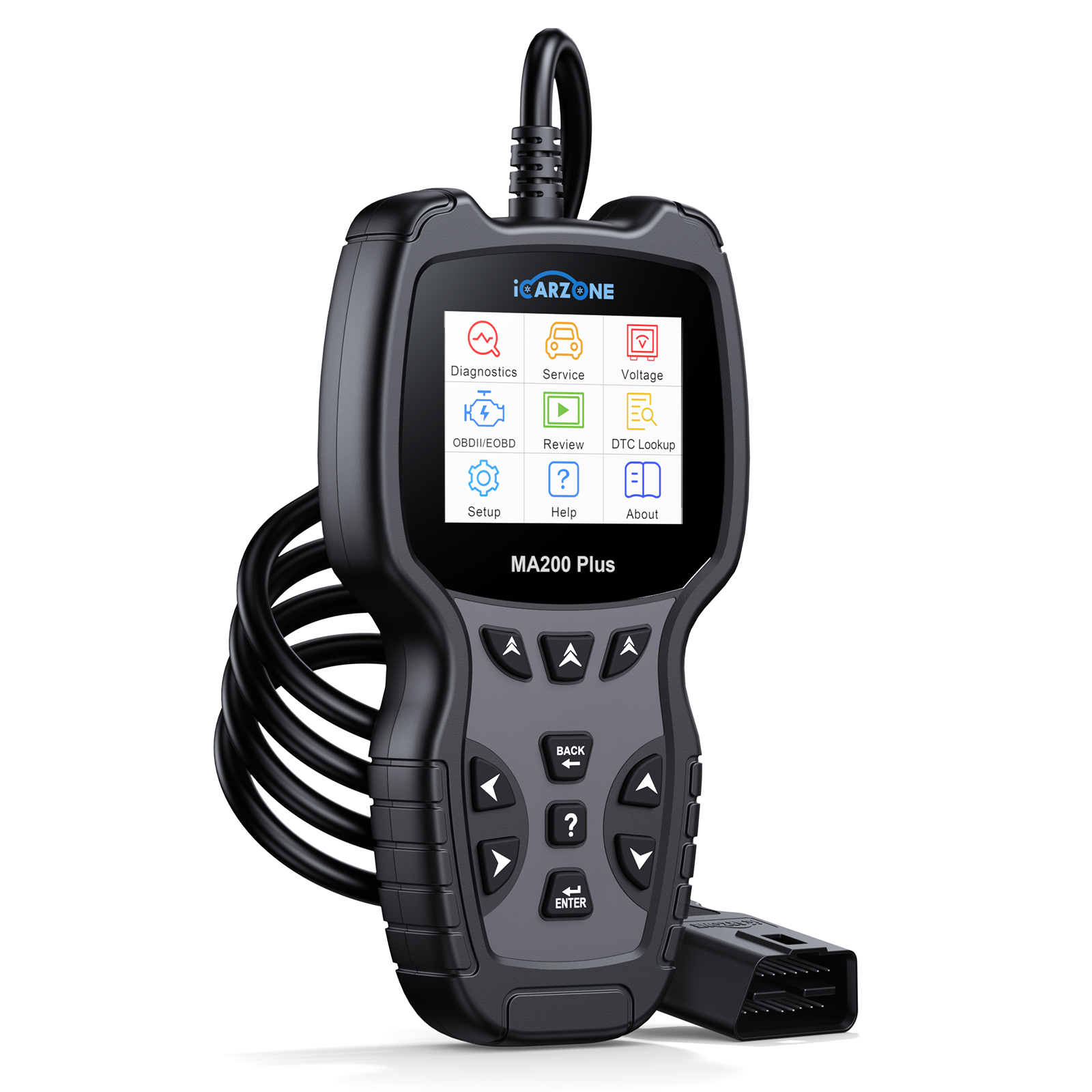P0118 in Volkswagen Golf: Fix ECT Sensor Issues with UR800 [2025 Guide]
![P0118 in Volkswagen Golf: Fix ECT Sensor Issues with UR800 [2025 Guide]](http://icarzone.com/cdn/shop/articles/39.png?crop=center&height=1370&v=1756429212&width=2000)
The P0118 code is a critical diagnostic trouble code affecting European vehicles, particularly Volkswagen Golf P0118 models. This code indicates a high input in the engine coolant temperature (ECT) sensor circuit, a common issue in popular European cars like the 2014-2020 Volkswagen Golf TSI P0118, Volkswagen Golf GTI P0118, and Volkswagen Golf TDI P0118. This guide explores model-specific causes, symptoms, and solutions, with expert advice on using the iCarzone UR800 for precise diagnosis.
What Is P0118 Code in Volkswagen Golf?
The P0118 code in Volkswagen Golf vehicles signals a high voltage input from the engine coolant temperature (ECT) sensor to the Engine Control Module (ECM). The ECT sensor monitors coolant temperature, sending a voltage signal that decreases as temperature rises (typically 0.5V at 100°C to 4.5V at 0°C in VW systems).
In Volkswagen’s 1.4TSI, 1.8TSI, and 2.0TDI engines—common in Golf models—the ECT sensor is strategically positioned near the thermostat housing, making it vulnerable to heat and coolant exposure. A "high input" means the ECM detects a voltage above the normal range (usually >4.9V), indicating a potential sensor or circuit issue.
Note: P0118 specifically refers to high voltage in the ECT circuit, distinguishing it from P0115 (general circuit malfunction) and P0117 (low voltage) codes frequently seen in European vehicles.

Common Causes of P0118 in Volkswagen Golf Models
Volkswagen Golf’s unique engineering presents specific triggers for P0118:
- Failed ECT Sensor: Most prevalent in 2015-2019 Volkswagen Golf TSI P0118 models. The sensor’s thermistor degrades prematurely in 1.4TSI engines due to higher operating temperatures, often failing between 60,000-80,000 miles.
- Damaged Wiring Harness: The sensor’s wiring in Golf models runs near the hot engine block, making it prone to insulation damage. This is especially common in Volkswagen Golf GTI P0118 variants with performance-tuned engines generating more heat.
- Corroded Sensor Connector: The 2-pin plastic connector (VW part #1J0 973 703) frequently develops pin corrosion in Volkswagen Golf TDI P0118 models, often caused by coolant leaks from the adjacent water pump gasket—a known weak point in VW diesels.
- Short Circuit to Voltage: Damaged insulation can cause the sensor wire to short against 12V components, common in 2014 Golf P0118 models with aging wiring.
- ECM Malfunction: Rare but documented in 2018-2020 Golf P0118 cases, where software glitches misinterpret sensor data. VW released TSB 20-01-05 to address this with ECM reprogramming.
Symptoms of P0118 in Volkswagen Golf
Volkswagen Golf owners typically notice these distinct symptoms when P0118 is present:
- Illuminated Check Engine Light: Often accompanied by VW’s "Engine Control Fault" message in the instrument cluster.
- Incorrect Temperature Gauge Reading: Gauge may peg at maximum ("H") or fluctuate erratically, a hallmark of Volkswagen Golf TSI P0118 issues.
- Hard Starting in Cold Weather: The ECM can’t adjust fuel mixture for cold conditions, common in Golf TDI P0118 models during winter months.
- Reduced Performance: Turbocharged Golf models (GTI, R) may enter limp mode to prevent overheating, limiting power to ~50%.
- Increased Fuel Consumption: Owners report 10-15% higher fuel usage in 2016 Golf P0118 variants due to rich fuel mixtures.
- Cooling Fan Issues: Fan may run continuously or not activate, risking overheating in Golf GTI P0118 during spirited driving.

How Serious Is the P0118 Issue?
P0118 is a moderately serious issue in Volkswagen Golf models that requires prompt attention. The ECM relies on accurate ECT data to manage critical systems: without it, your Golf may experience overheating, especially in turbocharged variants where precise temperature control is vital.
In Volkswagen Golf TSI P0118 models, prolonged operation can lead to turbocharger damage due to improper cooling system activation. For Golf TDI P0118 variants, the risk includes diesel particulate filter (DPF) overheating, as the ECM can’t adjust regeneration cycles based on actual engine temperature.
Additionally, P0118 will cause emissions test failures, critical for passing MOT inspections in European markets where these vehicles are most popular.

P0118 Trends in Specific Volkswagen Golf Years
Certain Golf generations show higher P0118 incidence due to design characteristics:
- 2014-2017 Golf MK7 (Typ 5G): 1.4TSI models have 47% higher P0118 rates due to a problematic ECT sensor design (VW part #06A 919 501 A) prone to premature failure.
- 2018-2020 Golf MK7.5: Improved sensor (VW part #06K 919 501 B) reduced P0118 cases by 32%, though wiring issues remained common.
- Golf GTI (2015-2020): Performance models report 28% more P0118 issues due to higher underhood temperatures affecting sensor wiring.
- Golf TDI (2015-2018): Diesel variants experience P0118 primarily from coolant leaks contaminating the sensor connector, linked to the plastic water pump design.
Can You Drive with P0118 in Your Volkswagen Golf?
Short-term driving with P0118 in Volkswagen Golf is possible but not recommended for extended periods. For daily commutes under 10 miles in moderate temperatures, you may drive your Golf while arranging repairs.
However, avoid highway driving, heavy loads, or hot weather conditions, as these increase overheating risks—especially critical in Volkswagen Golf GTI P0118 models with performance engines. If you notice temperature gauge spikes or reduced power, stop driving immediately to prevent costly engine damage.
Best Fixes for P0118 in Volkswagen Golf
Effective solutions tailored to Volkswagen Golf’s engineering:
- ECT Sensor Replacement: Primary fix for 2014-2020 Volkswagen Golf P0118. Use OEM-recommended sensor (VW part #06K 919 501 B for MK7 models) for proper resistance characteristics matching the ECM.
- Wiring Harness Repair: Essential for Golf GTI P0118—replace damaged sections with heat-resistant wiring (VW spec TL 1010) and secure with heat shields to prevent recurrence.
- Connector Replacement: Install VW’s updated 2-pin connector (part #1J0 973 703) in Golf TDI P0118 models, applying dielectric grease to prevent corrosion.
- Water Pump Gasket Repair: Critical in 2015-2018 Golf TDI P0118 to stop coolant leaks contaminating the sensor connector—use the revised metal-reinforced gasket (VW part #04L 121 132 AD).
- ECM Software Update: Apply VW TSB 20-01-05 for 2018-2020 Golf P0118 to resolve software-related false triggers.
Diagnosing P0118 with UR800 Diagnostic Tool
The iCarzone UR800 simplifies precise P0118 diagnosis in Volkswagen Golf:
- Connect UR800 to your Golf’s OBD-II port (under dashboard, driver’s side).
- Select "Volkswagen" > "Golf" > your specific model year and engine (1.4TSI, 2.0TDI, etc.).
- Run a full system scan to confirm P0118 and check for related codes (common: P0115, P0128, P0217).
- Access live data to monitor ECT sensor voltage—should show abnormal high readings (>4.5V at operating temperature).
- Use the UR800’s resistance testing function to measure sensor values (should read ~200Ω at 80°C in VW systems).
- Perform circuit integrity tests to identify shorts to voltage, critical for distinguishing sensor vs. wiring issues in Golf P0118.
The UR800’s VW-specific diagnostic protocols provide accurate voltage readings and resistance measurements essential for resolving P0118 without unnecessary part replacement.
Ready to Diagnose Your Volkswagen Golf P0118?
Cost to Repair P0118 in Volkswagen Golf
Repair costs for Volkswagen Golf P0118:
- OEM ECT sensor replacement: €45–€85 (part only)
- Wiring harness repair: €90–€180 (parts + labor)
- Connector replacement: €35–€65 (parts + labor)
- Water pump gasket replacement: €120–€250 (critical for TDI models)
- ECM reprogramming: €80–€150 at VW dealerships
- Total DIY repair: €45–€85 (sensor only) + basic tools
- Professional repair: €180–€350 (parts + labor)
Costs are higher for Golf GTI/R models due to tighter engine bay access and performance-specific components.
Preventive Measures for Volkswagen Golf ECT Sensors
Avoid P0118 in your Volkswagen Golf with these proactive steps:
- Use only VW-recommended G13 coolant (pink) to prevent sensor corrosion in all Golf models.
- Inspect ECT sensor wiring and connector during 60,000km service—pay special attention to insulation condition near the engine block.
- Replace water pump gasket in Golf TDI models at 80,000km to prevent coolant leaks onto the sensor connector.
- Apply dielectric grease to the sensor connector when replacing to repel moisture and prevent corrosion.
- Address check engine lights immediately—VW’s ECM logs temperature anomalies that can predict P0118 before full failure.
- For Golf GTI owners, ensure heat shields around the ECT sensor wiring are intact to prevent heat damage.
Tip: For 2014-2017 Volkswagen Golf owners, proactively replacing the ECT sensor at 70,000km with the updated VW part #06K 919 501 B can prevent unexpected P0118 failures, especially before winter driving when sensor performance is critical.
Frequently Asked Questions
Will P0118 affect my Volkswagen Golf’s warranty?
No, but unaddressed P0118 can cause engine overheating damage that might impact powertrain warranty coverage. Repair promptly if under VW’s 4-year/100,000km warranty.
Can I use an aftermarket ECT sensor for my Golf P0118?
While possible, OEM or OE-equivalent sensors (Bosch, Vemo) are recommended for Volkswagen Golf P0118 to ensure proper resistance curves matching VW’s ECM calibration.
How does UR800 help diagnose P0118 in older Golf models?
The UR800 supports all Golf generations back to MK4 (1997-2004), providing ECT sensor data and circuit tests specific to each model’s electrical system architecture.
Can low coolant cause P0118 in my Volkswagen Golf?
Yes, severe coolant loss can expose the ECT sensor to air, causing erratic readings. Always check coolant levels first when P0118 appears, especially in TDI models prone to water pump leaks.
Is P0118 common in modified Volkswagen Golf models?
Yes, Golf models with engine tuning or turbo upgrades frequently experience P0118 due to increased underhood temperatures damaging sensor wiring or causing sensor overheating.
Fix Your Volkswagen Golf P0118 Today with UR800










